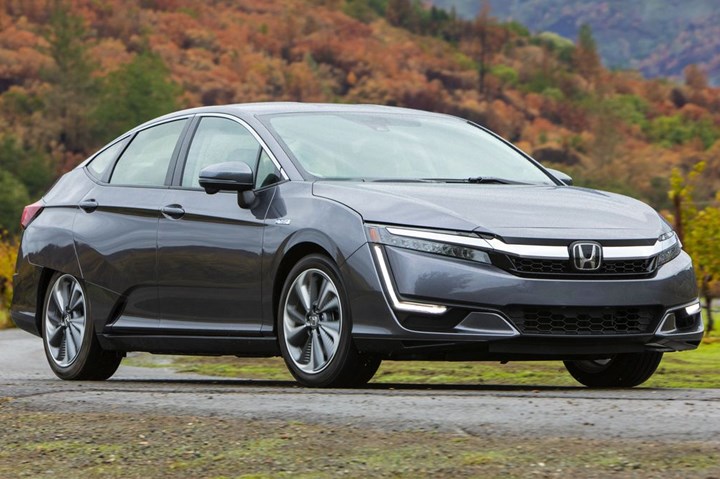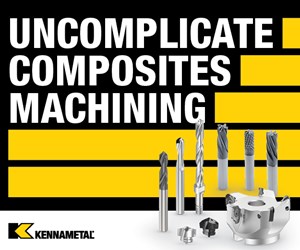Honda discontinues Clarity fuel cell and plug-in hybrid models
Production is ceasing August 2021 as part of a broader push to trim underperforming models and evolving strategies to sell only battery-electric and fuel-cell vehicles by 2040.

Photo Credit: Honda Motor
Multiple auto news sites have reported that Honda Motor (Tokyo, Japan) is ending production of the Honda Clarity plug-in hybrid and fuel-cell electric vehicle (FCEV) models in August 2021, a decision made as part of a broader push to trim underperforming models and continue toward the company’s goal of selling only zero-emissions vehicles by 2040, which was outlined in April 2021. Concluded production in August will ensure that the company has Clarity FCEVs available for lease through 2022, and continued support for all Clarity customers.
“The entire Clarity series played a valuable role in advancing Honda’s portfolio approach to electrification, which is an important aspect of our commitment to reduce CO2 emissions,” says a Honda spokesperson. “Now, with a commitment to carbon neutrality by 2050, Honda has set a target to make 100% of our vehicles sales battery-electric (BEV) or FCEVs by 2040. We are evolving our strategy with a focus on increased application of our two-motor hybrid system to core models in advance of the introduction of our first volume BEV models in 2024.” He notes that discontinuation of the plug-in hybrid and FCEV Clarity models in August is also consistent with this strategy.
Realigning global manufacturing operations per its zero-emissions commitment, Honda has also set a timeline to phase out of gasoline engines, which will gradually disappear from the lineup over the next two decades. So far this includes the Honda Legend, the company’s high-end gasoline-fueled sedan, as well as the Odyssey luxury sport utility vehicle; for the former, Honda is considering releasing models equipped with advanced self-driving technology.
The automaker first rolled out fuel cell vehicles in 2016. But according to Nikkei, the lease-only Clarity’s relatively high price of 7.83 million yen ($71,200), coupled with a dearth of hydrogen-fueling stations, dampened demand for the model. Honda has reported to have only sold 1,896 units worldwide in 2021, with full-year 2020 sales totaling only 4,215 units, down from 11,654 units in 2019.
With its discontinuation, this will leave the Toyota Mirai fuel cell sedan and the Hyundai Nexo as the remaining hydrogen fuel-cell vehicles on sale in the U.S. However, while considered a key component of decarbonization strategies, is has been mentioned that a hefty price tag and scant hydrogen-fueling infrastructure have kept the vehicles from gaining popularity.
Honda notes that it plans to continue its partnership with General Motors (GM, Detroit, Mich., U.S.), which began in 2013, in developing fuel cell vehicles, and that it has already considered rolling out new models. The company reported in April that the first two of Honda’s new EV models will be making their debut in 2024 using GM’s Ultium battery platform. Overall, the company has set a goal to gradually increase its electric and hydrogen-powered vehicle offerings over the next two decades, but some experts believe automakers will now focus on adapting fuel cell technology for buses, trucks and other commercial vehicles instead.
“FCEVs will play a key role in our zero emissions strategy, which is being advanced by our joint manufacturing and development agreements. We continue to make significant investments in fuel cell infrastructure and battery technology,” the Honda spokesperson concludes.
Related Content
-
Protecting EV motors more efficiently
Motors for electric vehicles are expected to benefit from Trelleborg’s thermoplastic composite rotor sleeve design, which advances materials and processes to produce a lightweight, energy-efficient component.
-
Infinite Composites: Type V tanks for space, hydrogen, automotive and more
After a decade of proving its linerless, weight-saving composite tanks with NASA and more than 30 aerospace companies, this CryoSphere pioneer is scaling for growth in commercial space and sustainable transportation on Earth.
-
Materials & Processes: Resin matrices for composites
The matrix binds the fiber reinforcement, gives the composite component its shape and determines its surface quality. A composite matrix may be a polymer, ceramic, metal or carbon. Here’s a guide to selection.








.jpg;maxWidth=300;quality=90)







